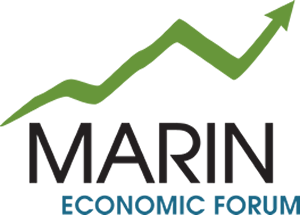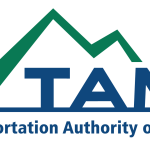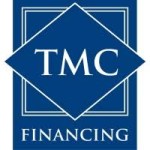Three takeaways pointing to why the North State’s economic picture is a mixed bag
The threat of recession, post-fire recovery, rising minimum wage, job growth and even a 2020 presidential election prediction were touched on during economist Robert Eyler’s presentation Thursday at the 20th annual North State Economic Forecast Conference.
Right off the bat, Eyler told a packed room at the Sheraton in Redding that economic experts are predicting a recession will not hit before 2022.
However, the economy both locally and nationally is slowing, and we may be “flirting” with a recession by next year, said Eyler, director of the Center for Regional Economic Analysis at Sonoma State University.
Moreover, as the economy’s growth slows, a major event or disaster, can push us closer to a recession, he said.
Here are three takeaways and a White House prediction from Eyler’s presentation:
Economy ‘fundamentally’ strong
The North State has suffered much in the wake of two disasters, the Camp Fire that destroyed Paradise in November 2018 and the Carr Fire that ravaged Shasta County in July 2018.
But given the devastation, the local economy is doing relatively well, Eyler said.
Eyler pointed to the 2017 fires in Napa and Sonoma counties and how those disrupted the economy, but within about an eight-month period, numbers were trending to normal levels. Expect the same in Shasta County.
“You should not see any lingering labor market effects from the fire, which is good. It allows you to plan more easily rather than his wild scramble,” Eyler said.
Wages not keeping up with job growth
With the unemployment rate at historically low levels, Eyler said the prospect of it remaining there for five, six years in a row “is somewhat mind-boggling” for an economist like himself.
“It really seems to suggest that there’s fundamental strength in the American economy,” Eyler said.
The unemployment rate in Shasta County in November was 3.9%, down from 4.3% for the same month in 2018.
He also noted that job growth in Shasta County is on the rise even in the wake of the Carr Fire.
“So that’s good news. In other words, jobs are not fleeing this area in mass,” Eyler said.
But the problem is that despite the job growth and demand for employment, income growth hasn’t kept pace, he countered.
“So what kind of jobs are we creating in an economy that has this characteristic? Low-income, low value added — generally speaking, lower-skilled jobs,” Eyler said.
Rising minimum wage squeezes small business
Eyler was asked how California’s rising minimum wage will affect small business.
This year, minimum wage rose to $12 an hour for businesses with 25 or less employees, and it’s scheduled to go to $15 an hour by Jan. 1, 2023.
Small businesses, especially those in rural communities, will be hit the hardest, Eyler said.
“First, because there’s not as much of a marketplace to say, ‘OK, I’m now facing higher wages. Let me just price those on through.’ Who are you going to price them through to?” he said.
Eyler then asked everybody in the crowd to raise their hands if they’re an Amazon Prime member.
“OK, so that is also proof positive why small businesses are at risk for that minimum wage hike,” he said after dozens of hands went up. “If I can’t do it from a regional market standpoint, and I’m now facing global competition in terms of retail, where a lot of those jobs lie, it’s going to really be tough on small businesses, especially on the retail and hospitality side.”
‘Entertainment purposes only’
Wrapping up his presentation, Eyler touched on the 2020 presidential election, with the caveat that he’s not a political scientist.
“(President) Trump is going to win the election,” he offered. “Statistically, historically, everything is pointing to that.
“That’s a political scientist take from a political scientist that I’m telling you. Take it for what you will. Entertainment purposes only.”
Be the first to receive updates and news from MEF by subscribing or liking us on our social media pages: Facebook, Twitter, and LinkedIn!
Tags: news














